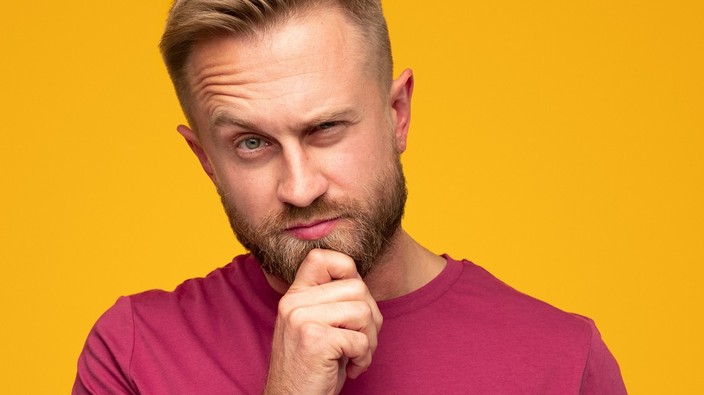the evolution of eyebrow trends is littered with dos and absolutely
do-nots. the silent film era had the
‘thin and rounded’ look, while the glamorous 70s saw brows that were
waxed and arched. they got thicker in the 80s before giving way to the ‘barely there,’ and then, of course, there was the
pencil-thin trend of the early aughts. in the last decade, eyebrows have been bold and bushy, brushed up,
bejeweled, bleached, boxed, feathered and
shaved into odd shapes.
instagram has helped to change eyebrows forever, with a new popular look popping up every couple months. apparently, the “cindy crawford brushed-up and bushy, but natural” look is in right now.
but lost in the fads and furor is a conversation about the purpose of eyebrows. sure, you can cut cool slits in them, but what do they actually do?
an evolutionary leftover over thousands of years, humans have lost most of the thick hair that once covered our bodies. it remains on the tops of our heads and a few other areas, including above our eyes.because we use sight as our primary sense, the eyebrow evolved as protection for the eyeball. take away all the trendy looks, and you will see eyebrows naturally grow with the hairs pointing toward the side of your face. this is to prevent rain, sweat and debris from entering the eye so we can maintain clear vision.
the human connection perhaps the most important function of the eyebrow is something we don’t really notice — at least consciously. the eyebrow is vital in social signalling and communicating with our fellow homo sapiens.early humans had a distinct brow ridge and skull shape that made us look more intimidating, but it is
believed that ridge played a key role aiding in communication with others. modern humans lost the ridge and now have a flat, vertical forehead, but the eyebrows that remain now do the job of sending signals about our emotions, according to a 2018
study.“we propose that conversion of the large brow ridges of our immediate ancestors to a more vertical frontal bone in modern humans allowed highly mobile eyebrows to display subtle affiliative emotions,” the researchers wrote.we
raise our eyebrows subconsciously to express sympathy or that we aren’t a threat, we lower them to express anger, and we move them in tandem with our eyes to
display a vast array of other emotions and social cues.
are there health issues associated with brows? eyebrow lice is a thing. while most people are familiar with head lice, pubic lice or ‘crabs’ are similar little bugs that use body hair as a nesting ground.and while it may make logical sense that lice found in the eyebrows comes from head lice,
eyebrow lice is actually pubic lice that is usually spread when the eyebrow is touched after contact with the pubic region. treatment usually includes a combination of medication and combing the nit out of the hair.
yes, you can lose eyebrow hair eyebrow hair loss is not uncommon, and according to healthline can be caused by
several health conditions, including alopecia areata,
psoriasis, nutrient deficiencies or
thyroid disease.
madarosis is another condition that causes hair loss in the eyebrows and eyelids. madarosis often occurs in the presence of a variety of other underlying health conditions. infections, some medications, genetic conditions and even leprosy can result in madarosis.eyebrows can also offer clues to health issues. for example,
waardenburg syndrome is a rare disease that can cause eyebrows to grow together, as can
patau syndrome, and
smith–lemli–opitz syndrome. one sign of
cornelia de lange syndrome is long eyebrows, while in cases of
trichotillomania, people tend to repeatedly pull their brow hair out.
nick beare is a writer with healthing.ca.
